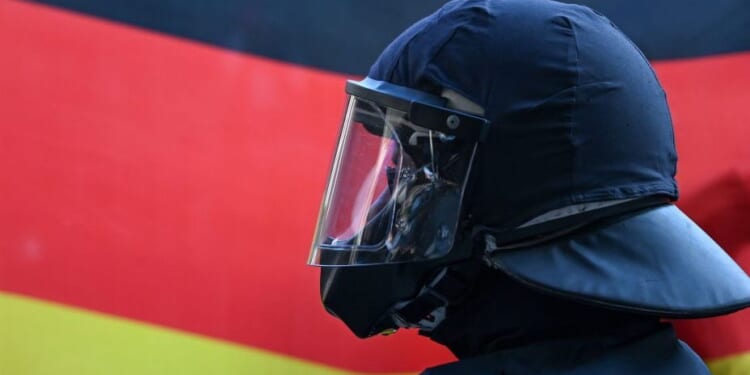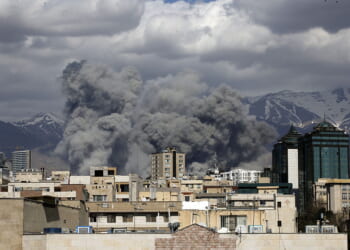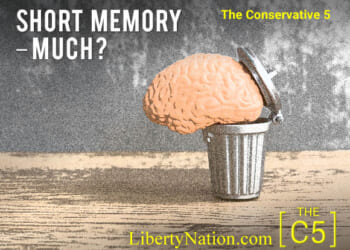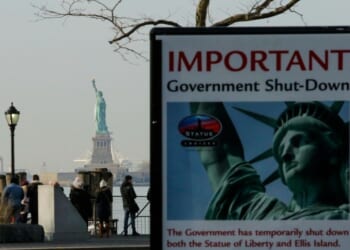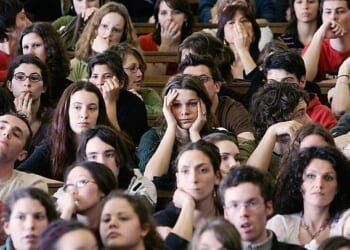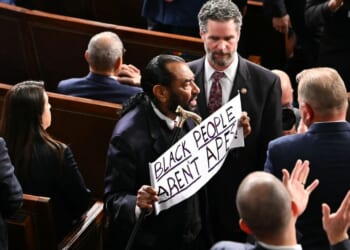German fiscal austerity may have kept debt service low and soothed — for now — capital markets. But there have been drawbacks — many of them felt increasingly at the local level, in the everyday lives of ordinary people. Under-financed local governments have been unable to stem the rapid deterioration of public services, repair crumbling roads or maintain communal sports facilities. Public transportation has declined, there is a shortage of affordable housing, and local schools are unable to cope with new demands, such as teaching classes in which only a minority understand the national language.
As such problems accumulated, so too did discontent with public policy and democratic politics. As a result, there has been a growing fragmentation of the postwar political party system, a decline of the established parties on both the centre-right and the centre-left, along with a Right-wing “populist” challenge to the political system inherited from the postwar era, in the form of the Alternative für Deutschland (AfD).
Relatively little attention has been paid, though, to whether and how declining trust in political institutions extends to local government, which has traditionally been less politicised, with local families and networks allegedly making for a less ideological, less confrontational, and more socially embedded politics of pragmatic consensus and cooperation. It is from this perspective, then, that the recent local elections in the state of Nordrhein-Westfalen (North Rhine-Westphalia, NRW) may be of more than just local interest.
With 18 million inhabitants, 14 million of whom are eligible to vote, NRW is by far the largest state of the Federal Republic. With elections held every five years, voters elect local parliaments for cities and counties as well as county administrators (Landrat) and mayors (Bürgermeister, Oberbürgermeister) for the cities. If no candidate for county administrator or mayor wins more than 50% of the vote, a French-style run-off is held.
The NRW local elections of 14 and 28 September were the last major elections of the year in Germany, and have been intensively studied by election strategists. Looking at the first round, one finds a considerable increase in turnout, from 51.9% to 56.8%, as is always the case when new “populist” challengers mobilise both friends and foes. More surprising was a remarkable regional stability in both CDU and SPD support, which at 33.3% and 22.1% respectively, lost no more than 1.0 and 2.2 percentage points — both ending up far above their Bundestag results of February 2025 and a national poll (by Forschungsgruppe Wahlen) taken around election day (see Table). The Greens fared far worse than the SPD, falling 6.5 percentage points to 13.5%, despite being in a governing coalition with the CDU at the state level. Finally, there were two winners compared with 2020, the populist Left Linkspartei (5.6% up from 3.8%) and, above all, AfD, which almost tripled its result, from 5.1% to a striking 14.5%.
| Recent Performance of German Political Parties | ||||
| North Rhine-Westphalia local election 2025 | North Rhine-Westphalia local election 2020 | German Federal Election 2025 |
Nationwide poll from September 2025 |
|
| CDU | 33.3% | 34.3% | 22.6% | 26% |
| SPD | 22.1% | 24.3% | 16.4% | 15% |
| Grüne | 13.5% | 20% | 11.6% | 10% |
| AfD | 14.5% | 5.1% | 20.8% | 26% |
| Linke | 5.6% | 3.8% | 8.8% | 11% |
Credit: Polling data: Forschungsgruppe Wahlen. Table: Wolfgang Streeck.
North Rhine-Westphalia, which contains the populous cities of Cologne, Dortmund, Essen and Düsseldorf, has always been socially and politically on the more conservative side. This may well explain why the CDU and SPD, Germany’s legacy parties, held up relatively well — regardless of the looming social spending reductions at federal level under the no-longer-so-grand CDU/SPD coalition. But it does make the result of the AfD all the more impressive — especially given the fact that, at the time of the election, there were hardly any AfD members yet in political offices in local communities, where local ties tend to be at least as important as party programmes, and the fact the AfD suffers in NRW from fierce public infighting. Moreover, as the AfD had been unable or unwilling to put up candidates in around 40% of constituencies, the official election result, computed on the basis of all constituencies, inevitably underestimates the AfD’s real support, probably by some margin. Where the AfD did not join the race this may have been because potential candidates were afraid of the social ostracism they might suffer after identifying themselves as AfD members. Or the party deliberately avoided constituencies where it could not expect to win a minimum of votes. In any case, both factors may have changed by the next election, which may explain the satisfaction of the party leadership after the first round.
Nonetheless, in spite of its gains, the AfD still did not manage to capture even one of the key trophies: the 52 regional positions of Landrat and Oberbürgermeister. But it did manage to disrupt traditional voting patterns. As a result of the AfD advance, 36 of the 52 races, many more than last time, had to go to a runoff. The AfD, however, was among the final two in only three of those races. There all the other parties united against the AfD candidate, leaving them with no chance of winning. The Brandmauer (firewall) remained intact. This, too, may no longer be the case five years from now, with the AfD currently present in all major local assemblies and in a position to build alliances with other parties and groups of voters.
“The AfD is in a position to build alliances with other parties.”
If the AfD was the winner, the Greens were the losers — with the exception of Münster, where the Green candidate for mayor narrowly defeated the CDU candidate in the run-off. Münster is a beautiful and prosperous university town that has long been governed, and governed well, by Christian Democrats of the Merkel sort, in an informal coalition with the Greens — an alliance between a well-to-do liberal-Catholic bourgeoisie and a large international student community. In Cologne, the fourth-largest city in Germany, with one million inhabitants, and easily the worst-governed, the Greens lost, after having been in a formal coalition with the CDU for a decade. In the run-off, their candidate, of Turkish descent, vice chair of the state legislature, lost to a Social Democrat supported by the CDU, whose candidate had come in only third in the first round. Generally, the party paid the price for the last federal government’s climate-change policy, which tried to legally force homeowners to install new heating systems that could easily cost more than their houses; buy overpriced electric cars; and make local communities accommodate an open-ended number of refugees and asylum seekers assigned to them by Länder governments.
Of the two traditional majority parties, the CDU and SPD, the former did better than the latter, notwithstanding the record low national support for the CDU and its Chancellor, Friedrich Merz (see the table above), after barely six months in office. This may be due in part to the Minister-President of NRW, Hendrik Wüst, also CDU, who is Merz’s main internal rival. Governing with the Greens, who do not have much to say under him, he radiates a friendly competence and calmness that Merz all too obviously lacks. More importantly, the CDU can cohabit more easily with the AfD than can the SPD, not necessarily for programmatic reasons but because its social milieu, lower-class and middle-class Catholic communities, common in the Rhineland and Westphalia, continues to be more resistant to AfD rhetoric than the SPD’s working-class milieu. This may explain why in Dortmund, an old industrial centre that the SPD had governed for the past 80 years, the AfD inflicted such heavy losses on the SPD that the CDU candidate won in the runoff. That so few SPD voters turned to the Linkspartei instead of the AfD may be due to the traditionally low presence of the Linke in local politics, and to SPD voters having grown too old to be attracted by the radicals’ youthful image.
All in all, the NRW election result will only add momentum to efforts to have the AfD banned by the Constitutional Court, by those in the SPD parliamentary party who consider Kampf gegen rechts (Battle against the Right) to be their party’s foremost political mission. Under the German constitution, a party can be found unconstitutional by the Constitutional Court if it is found be hostile to “the liberal-democratic basic order”. There is a long legal literature on what this could mean. In the past, two parties were declared unconstitutional: the Sozialistische Reichspartei Deutschlands in 1952, a self-declared successor organisation to the NSDAP, and the Kommunistische Partei (Communist Party) in 1956. Once found unconstitutional, a party is formally dissolved by the government, its funds confiscated, and attempts to continue it or establish a substitute organisation become punishable under criminal law, with imprisonment from six months to five years, or from one to ten years “where the offender acts as a ringleader or instigator… Attempt shall also be punishable” (Section 84 of the Criminal Code).
There are good political reasons for the SPD to wish the AfD banned as soon as possible. After all, if the SPD’s decades-long decline continues, it may end up under 10% in the next federal election in early 2029, with the AfD the strongest party by far. As the Court will need time to investigate and deliberate, those in the SPD that want to see the AfD banned will have to ensure that the case is brought to the Court very soon, given that the Court may be hesitant to render a decision in the midst of the next federal election campaign, which will begin roughly in the spring of 2028. While two new judges, recently appointed on the SPD ticket, might support a ban in time, other judges under the influence of the CDU might not. Of course, if the Court were to decide only after the election, the fact alone that the AfD could then be found unconstitutional might damage its electoral prospects; expect the court proceedings to be professionally orchestrated by the government’s public relations machinery and dutifully dramatised by the public and private media. Potential AfD candidates might be scared away, and potential party members might not join for fear of being disqualified from jobs in the public sector after a party ban. Not least, Kampf gegen rechts before the Constitutional Court might also help hide the inability of the new federal government’s U-turn to fiscal profligacy to solve the local problems accumulated over decades of austerity, and it might divert attention from the cuts in social spending that will be necessary to finance the war in Ukraine.
Even if the Constitutional Court were to decide in favour of the established parties — and it could hardly decide otherwise in the midst of a highly politicised election campaign — the huge political and legal problems of banning and enforcing a party representing at least a third of the electorate would not disappear. While the Court can outlaw a political party, it cannot remove its members of parliament from their seats, at any level, federal, Länder, or local. In fact, if the AfD were banned, one third if not even more of all seats might be occupied by MPs elected on the AfD ticket after the next election, and all would be legally safe for the rest of the legislative term unless found to have engaged in something that government prosecutors considered “continuation” or “substitution” of the AfD. Accusations to this effect by political competitors could be expected en masse. (According to Section 46 of the Constitutional Court Act, details of how a party ban is to be executed are determined by the federal government by statutory order, without need for legislation.)
With a verdict after the next election, this would make a new, early election inevitable. In it, former AfD MPs could run as individual candidates or on lists of new Right-wing parties, unless excluded from running by the Länder electoral boards or, of course, in prison for continuation or substitution. There would be litigation galore. During an election campaign in the wake of a party ban, the Office of the Federal Prosecutor (Bundesanwaltschaft) would be busy day and night, observing suspicious candidates’ every move to determine whether they were in violation of the AfD ban, which would be a statutory offence. If they were found to be, they would have to be immediately disqualified from running and taken to the courts where they would face imprisonment. What a spectacle that would be.

